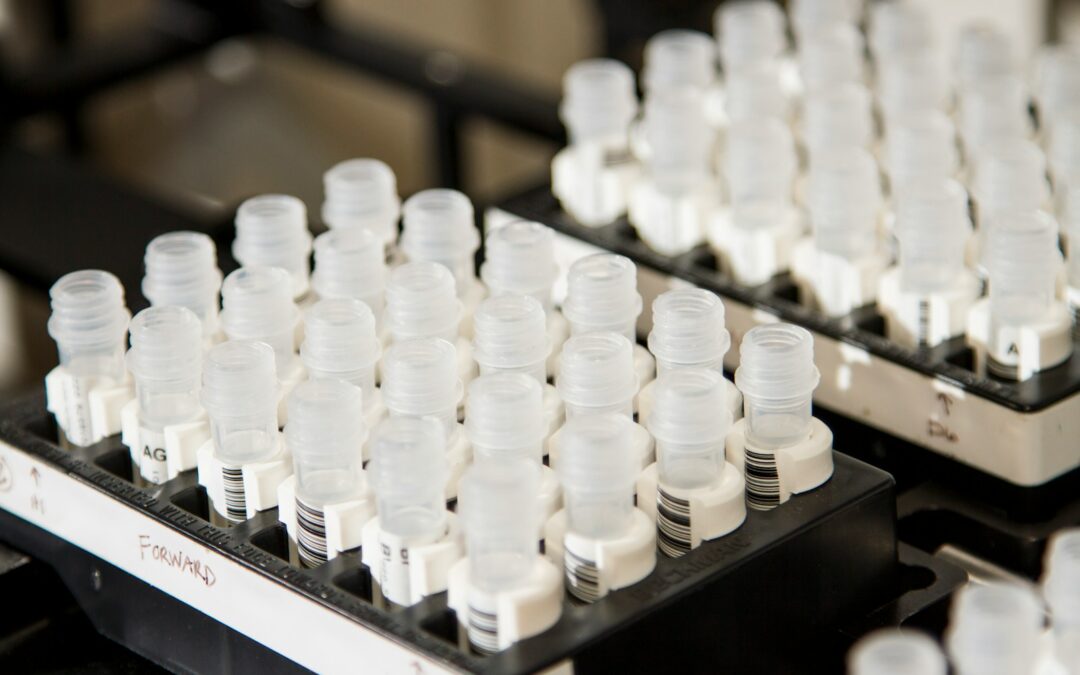Transformative Innovations in Healthcare and Agriculture
The Revolutionary Potential of Genetic Engineering in Healthcare
Genetic engineering and synthetic biology advancements are poised to revolutionize healthcare. The ability to precisely edit genes through technologies such as CRISPR has opened new avenues for treating genetic disorders, developing personalized medicine, and even curing previously incurable diseases. This profound impact on healthcare can be seen in the development of targeted therapies for conditions like cystic fibrosis, sickle cell anemia, and various forms of cancer.
In regions like Saudi Arabia and the UAE, where investment in healthcare innovation is a priority, these advancements offer significant opportunities. The integration of genetic engineering into medical practices can lead to more effective treatments and improved patient outcomes. For example, hospitals in Riyadh and Dubai are exploring gene therapies that can correct genetic defects at their source, offering patients new hope for recovery and a better quality of life.
Moreover, synthetic biology, which involves designing and constructing new biological parts, devices, and systems, is enhancing the development of diagnostic tools and vaccines. The rapid creation of synthetic vaccines, such as those developed for COVID-19, demonstrates the potential for synthetic biology to respond swiftly to emerging health threats. This capability is crucial for maintaining public health and preparedness in the face of global pandemics and other health crises.
Enhancing Agricultural Productivity and Sustainability
Genetic engineering and synthetic biology are also making significant strides in agriculture, promising to address some of the world’s most pressing challenges related to food security and sustainability. By engineering crops to be more resistant to pests, diseases, and environmental stresses, these technologies can improve agricultural productivity and reduce the reliance on chemical pesticides and fertilizers.
In the UAE and Saudi Arabia, where arid climates and limited arable land present unique agricultural challenges, genetic engineering offers viable solutions. For instance, researchers are developing genetically modified crops that can thrive in saline soils and require less water, making them ideal for cultivation in desert environments. These innovations can help ensure a stable food supply and reduce the environmental impact of traditional farming practices.
Synthetic biology is also playing a crucial role in developing sustainable agricultural practices. By engineering microorganisms to enhance soil health and promote nutrient cycling, farmers can improve crop yields and reduce the need for synthetic inputs. Additionally, synthetic biology enables the production of bio-based fertilizers and pesticides, further minimizing the ecological footprint of agriculture. These advancements are not only beneficial for the environment but also contribute to the economic resilience of the agricultural sector in regions like Riyadh and Dubai.
Addressing Ethical and Regulatory Considerations
Balancing Innovation with Ethical Responsibility
While the potential benefits of genetic engineering and synthetic biology are immense, it is essential to address the ethical implications and ensure responsible use of these technologies. The ability to edit genes and create new biological systems raises questions about the potential for unintended consequences, long-term effects on ecosystems, and the ethical considerations of altering life at the genetic level.
In Saudi Arabia and the UAE, where technological advancements are rapidly adopted, establishing robust ethical frameworks is crucial. These frameworks should address issues such as informed consent, the potential for gene editing in humans, and the equitable distribution of benefits. By prioritizing ethical considerations, these regions can ensure that genetic engineering and synthetic biology are used responsibly and for the greater good.
Public engagement and education are also vital in addressing ethical concerns. By fostering an informed dialogue about the implications of these technologies, stakeholders can build public trust and support for their responsible development and use. This approach can help mitigate fears and misconceptions, paving the way for the successful integration of genetic engineering and synthetic biology into healthcare and agriculture.
Regulatory Frameworks and International Collaboration
Effective regulatory frameworks are essential for overseeing the development and application of genetic engineering and synthetic biology. These regulations must balance the need for innovation with the protection of public health, safety, and the environment. In regions like Riyadh and Dubai, regulatory bodies can establish guidelines for the safe use of these technologies, ensuring that they meet high standards of efficacy and safety.
International collaboration is also critical in developing and harmonizing regulatory standards. By working with global partners, countries can share best practices, address cross-border challenges, and ensure that advancements in genetic engineering and synthetic biology benefit humanity as a whole. This collaborative approach can help prevent the misuse of these technologies and promote their responsible development and application.
Furthermore, regulatory frameworks should be adaptable to accommodate the rapid pace of technological advancement. Continuous monitoring and evaluation of the impact of genetic engineering and synthetic biology are necessary to ensure that regulations remain relevant and effective. By adopting a proactive and flexible regulatory approach, regions like Saudi Arabia and the UAE can lead the way in harnessing the transformative potential of these technologies while safeguarding public interests.
Conclusion: Embracing the Future of Genetic Engineering and Synthetic Biology
The advancements in genetic engineering and synthetic biology hold tremendous promise for transforming healthcare and agriculture. By enhancing our ability to treat genetic disorders, develop personalized medicine, and improve agricultural productivity, these technologies can address some of the most pressing challenges of our time. However, it is essential to balance innovation with ethical responsibility and robust regulatory oversight.
In regions like Saudi Arabia and the UAE, where the commitment to technological advancement is strong, embracing these technologies can drive economic growth, improve quality of life, and contribute to global sustainability efforts. By prioritizing ethical considerations, fostering public engagement, and collaborating internationally, these regions can lead the way in the responsible development and use of genetic engineering and synthetic biology.
As we look to the future, it is crucial for business executives, policymakers, and researchers to work together in creating a balanced and inclusive approach to these transformative technologies. By doing so, we can unlock their full potential and ensure that genetic engineering and synthetic biology contribute positively to society, benefiting individuals and communities worldwide.
#GeneticEngineering #SyntheticBiology #HealthcareInnovation #AgriculturalBiotechnology #ResponsibleAI #SaudiArabia #UAE #Riyadh #Dubai #BusinessSuccess #Leadership #ProjectManagement













